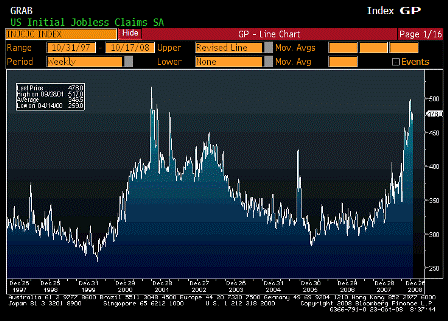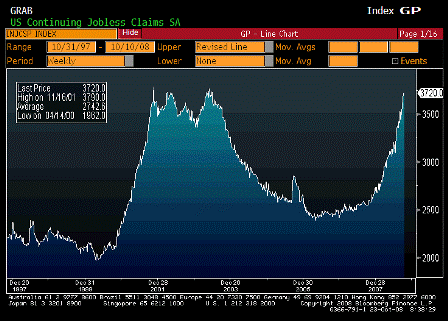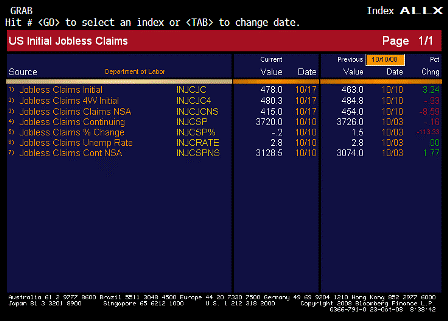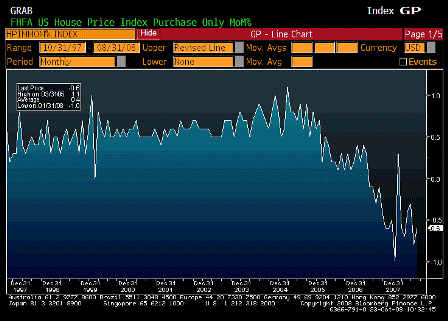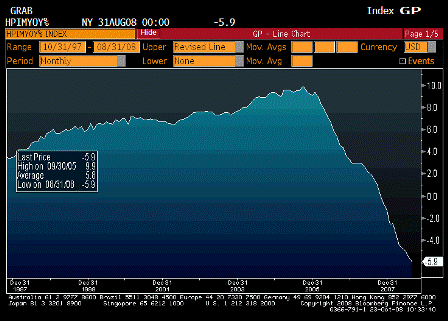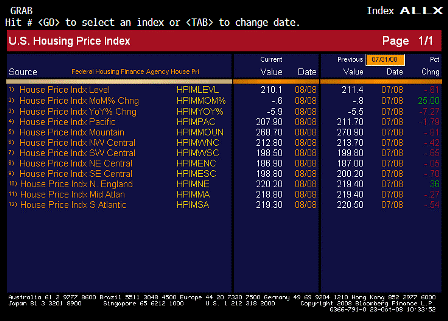[Skip to the end]
ECB on inflation- while interest rate cuts are likely (and in my honest opinion, won’t help anything), what they consider low unemployment and wage gains still a factor and making headlines and have been causing some footdragging.
By Ben Sills
“Whether that means inflation is suddenly going to fall enough is highly doubtful,” said Broux. “Unemployment is the lowest in a generation.”
While oil prices have halved in the past three months and inflation slowed to 3.6 percent in September, workers are demanding compensation for higher costs.
Germany’s IG Metall labor union is seeking an 8 percent pay increase, the largest in 16 years, and workers at Ireland’s Electricity Supply Board last month demanded 11.3 percent.
Germany preparing some kind of fiscal package, but still no details. The government and bond issuance is already set to gap up, and this will add to the systemic risk:
Germany is preparing a package of economic measures to support consumption and help selected industries as growth in Europe’s largest economy rapidly loses steam, government officials said on Wednesday.
The fiscal package is considered more than just an economic response to the financial crisis; it is also a political move aimed at making Berlin’s €500bn ($644bn, £395bn) rescue package for its banks more palatable to voters, a year ahead of a general election at risk of becoming overshadowed by the abrupt slowdown.
The government reduced its 2009 gross domestic product growth forecast last week from 1.2 to 0.2 per cent and several economists fear the economy could even shrink next year.
Meaning higher deficits.
Although details of what will be included are yet to be announced, the move confirms that Berlin is no longer aiming to balance the federal budget by 2011, once a central goal of Angela Merkel, the chancellor.
Government officials said on Wednesday Ms Merkel had appointed Jörg Asmussen, deputy finance minister, and Walther Otremba, deputy economics minister, to prepare a list of measures to support consumers and business that could be adopted as early as next week.
The growth-supporting efforts are thought to be tax incentives to encourage consumption of German products, such as new cleaner cars or energy-efficient heating systems for homes.
“We need measures that have leverage,” said Joachim Poss, a Social Democratic MP and public finance expert, adding that these should be limited in the time they were available.
One option would be to increase the budget of a 2006 programme of tax incentives to encourage consumers to insulate their homes.
The economics ministry is also keen for KfW Group, the public sector development bank, to provide 100 per cent loans to small and mid-sized companies, as they struggle to secure credit in the financial turbulence.
More controversial is the issue of tax cuts, largely because of Ms Merkel’s concerns, shared by Peer Steinbrück, the finance minister, that these could fail to increase consumption at a time the downturn is beginning toaffect tax revenues.
However, an economics ministry official said Mr Asmussen and Mr Otremba had not abandoned the notion of income tax cuts.
Alternatively, the government could decide to bring forward by one year a decision to allow taxpayers to deduct the cost of their health insurance from their tax bills, the official said.
The decision, forced upon the government by a court ruling, was due to apply from 2010 and would cost the federal and regional governments €9bn a year in total.
In contrast, China, with its own fiscal authority and non-convertible currency, has no solvency issue and can get the job done if they aren’t shy about it:
BEIJING, Oct 23 (Reuters) – China can overcome the tightening in economic conditions by boosting domestic demand, Chinese Premier Wen Jiabao said on Thursday.
“We can overcome the current difficulties through stimulating domestic demand,” said Wen after meeting German Chancellor Angela Merkel.
Merkel added: “We want to use the chances (we have) through an intense cooperation.”
[top]

